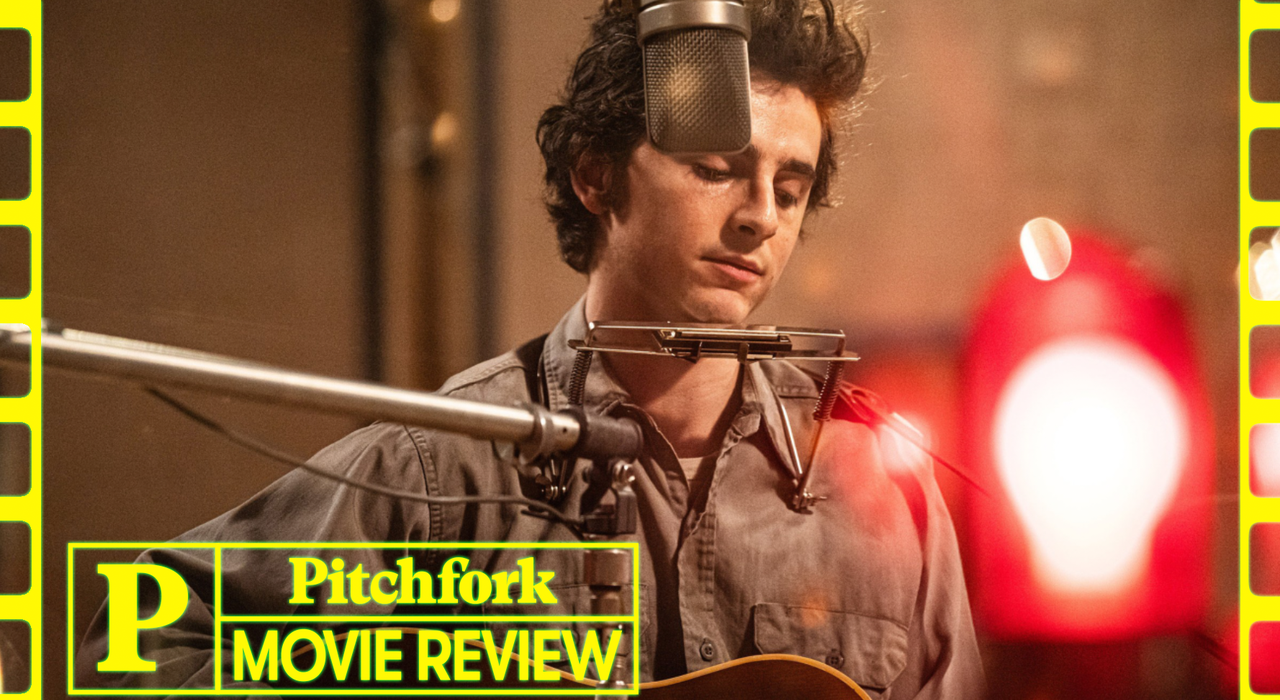While Mangold and Chalamet have discussed their desire to interpret, not imitate, Dylan, one wonders why the mimicry wasn’t scaled back. When he’s not singing, Chalamet offers only a surly, too-cool facade. He squashes Dylan’s charm, sense of humor, and humanity under a freight of forced mannerisms. In one shot, as he prepares for his provocative Newport set, Dylan leers into a mirror, strumming his guitar with hostile downstrokes. We’ve seen this in every biopic: A scene that provides some juicy intent behind a historical moment too alchemic to grasp. For most of the film, Chalamet lacks real presence, and always seems like he’s tripping over a suit that’s five times too big.
Barbaro’s Joan Baez, on the other hand, is understated and graceful. During a scene at Greenwich Village’s famed Gaslight Cafe, Dylan spots Baez playing “House of the Rising Sun,” (which he would later record for his debut album). Barbaro’s performance is stirring, her falsetto fine and opalescent. She also extracts a slightly better performance out of Chalamet, as the two prod at each other throughout their tumultuous romance and creative exchanges. (Dylan’s other early love affair, with Suze Rotolo—played by Elle Fanning under the name Sylvie Russo—falls a bit flat onscreen.)
Following their first affair, Baez pointedly reminds Dylan that she doesn’t just sing traditional music—she writes originals, too. In what is easily the best line of the movie, so much so that it seems to have leaped from an entirely different screenplay, Dylan replies: “‘Sunsets and seagulls.’ ‘The smell of buttercups…’ Your songs are like an oil painting at the dentist’s office.” In a movie stuffed with platitudes and strained hints at its own themes, it’s an efficient slight that feels more genuine to a character spurred by wit and the written word, and a welcome shift from Chalamet’s constant muttering. When Mangold met with Bob Dylan, he did a minor punch-up on the script, changing a few lines here and there. I can’t help but wonder if that was one of them.






